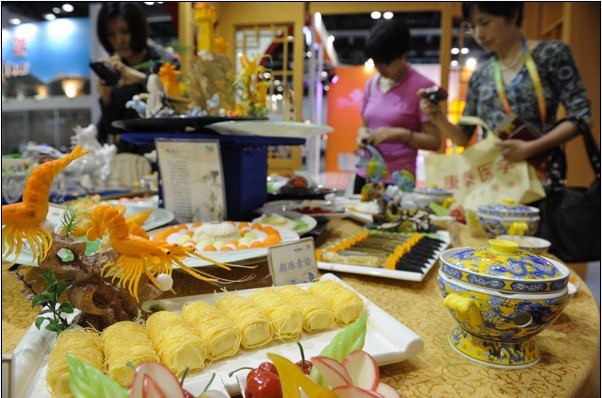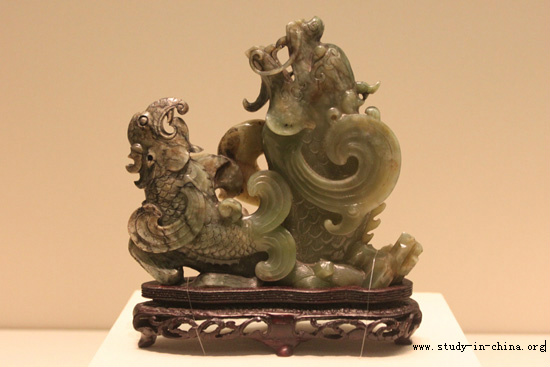| Home > China Feature |
Ailments in the East: Looking at Traditional Chinese Medicine Today
Some may reach out for the quick and easy fix of Western medicine, while others might try the unconventional form of treatment: Traditional Chinese Medicine (TCM)
TCM is complex and overwhelming to try and understand as specific variables need to be considered to diagnose the right remedy for ailments from the common cold to fertility issues. TCM has multiple branches such as acupuncture, cupping, and the practice of herbal medicine. Yet it has been known that more women than men in China look to TCM for help. The majority of women who use it want help with their menstrual cycle, while others want to get pregnant and/ or avoid a miscarriage.
But TCM is not for everyone. With little emphasis on anatomical structures, the scientific community has said that TCM does not have enough evidence-based medicine to properly conclude of its effectiveness when compared to Western medicine. Not surprisingly, more and more Chinese are receiving Western medicine as their choice of treatment.
Immediacy versus waiting for results
Common ailments like cold, flu and fever may be cured within a 48-hour period when Western medicine is taken orally. However, taking TCM to cure the same ailment may take a week to see the same results.
David Tao, pharmacist at Guangdong Provincial Hospital of Traditional Chinese Medicine in Guangzhou, sees thousands of outpatients especially during this time of the year. Tao says when the Cantonese are unwell and do not want to see a doctor, they would rather cook their own herbal medicine.
Some drink the commonly known Wang Lao Ji as a supplement; this Chinese tisane is one of the most popular herbal teas. But drinking herbal tea has a different connotation for locals in the south. The Cantonese prefer to drink a ‘soup’ of herbal tea (this is another form of TCM). According to Tao, many Cantonese drink more of these soups in the summer than in winter to prevent diseases and to heal one’s body.
Tao warns of herbal teas that claim to be effective when they are bottled and sold commercially. Because properties are diluted and sugar is added into the water, the benefits are almost nonexistent. Buying the ingredients and brewing your own tisane at home is the only way.
First time TCM hospital experience
TCM interprets that a person suffering from a disease is experiencing a disharmony within their body. At your first appointment a practitioner will begin by taking your pulse, looking at your tongue, skin and eyes, and finding out about your sleeping and eating habits.
It seems that after living in Asia for five years, my skin shows signs of unbalance caused by external factors (weather and free radicals) and internal factors (over-stress and poor eating habits), all of which has caused my skin to breakout – something that I have never experienced back in my home country.
After paying a 22 RMB registration fee at Xiguan Traditional Chinese Medicine House in Guangzhou, the TCM doctor in her 50s provided me a list of food I shouldn’t eat including beef, strong coffee, seafood, spicy food and even chocolate.
I was then given two individual bags (80 RMB/bag) and told to cook the bags’ ingredients for about two hours. Colorful leaves and an appeasing odor were emitted during the cooking process. Drinking it was pretty tough though. To help with the bitterness, I was advised to suck a candy while closing my eyes so I would not see the black-dirt looking drink.
TCM: the past, today and the future
Ken Wu and Cate Wei have degrees in TCM. Wu studied acupuncture while Wei acquired her knowledge in general TCM. Both have been brought up in TCM using households, but it wasn’t until they began working in the field that they truly understood it.
Wu says that after his studies he still believes 60 percent of what TCM has to say regarding treatments. He has since lost faith in the other 40% because of the many recent changes in TCM, many of which have been to do with the combining of Western medicine with TCM medicine.
After working for over a year as an acupuncturist, Wu laid down the needles due to the lack of recognition garnered by his specialty. Moreover, the long hours and low pay do not reflect the eight years that he had spent studying acupuncture. Today, he is a drummer for a couple of local bands in the city.
Meanwhile for Wei, who once worked at a hospital pharmacy, the daily grind only pushed her to realize that working in the TCM industry did not fit her personality. The mundane work of fetching herbs and other ingredients tired her out. She too decided to change career path, resulting in her having a better life today. She admits to having forgotten a lot of what she learned, but Wei still uses basic plant roots like ginseng in her diet because of its healing properties.
While Wu and Wei have stepped out of the TCM industry, they have remained believers knowing that keeping the TCM traditions alive is part of their culture. “There are good TCM in Japan, Korea and in Taiwan. They have good traditions and traditions are important. But TCM is more complicated in Mainland China,” says Wu.
Women, Pregnancy and TCM
Dr. Hong He, TCM gynecologist at the Guangzhou Women and Children’s Hospital and Health Institute, has been helping women and soon-to-be mothers for over 10 years. She says that TCM helps with the kidney system of pregnant women. “When there is a problem with their system, then there is a risk of a miscarriage.”
TCM consists of medicinals that are prepared using plant elements but are not the only substances. In the past, animals, minerals and human parts have been incorporated. Still, TCM remains a cause for concern and requires strict control because some of the mixtures can be highly toxic and thus need proper supervision.
“When we mention poison, it’s not your common poison. If the TCM can cure a particular disease, then it’s not poison,” Dr. He says. “But if it’s not the right medicine, then it can act as a form of poison. If the quantity prescribed is too high, then it becomes poisonous. You need to give the right amount of medicine.”
Post-TCM Hospital Experience
After 48 hours, two mugs of bitter drink and applying calamine lotion on my affected areas three times a day, there have been some improvements. Thoughts of trying acupuncture for muscle pains or cupping have remained a possibility for other ailments of mine.
Art
 more
moreChina Beijing International Diet ...
Recently, The hit CCTV documentary, A Bite of China, shown at 10:40 ...

Exhibition of Ancient Chinese Jad...
At least 8,000 years ago, Chinese ancestors discovered a beautiful...

Longmen Grottoes
The Longmen Grottoes, located near Luoyang, Henan Province, are a tr...

Custom
 more
moreWeb Dictionary
Martial Arts
Tai Chi Master Class Held in Moscow
MOSCOW, June 15, 2016 (Xinhua) -- Students learn from Shaolin ...
Celebriting 70 years' efforts in restoring Mogao...
Work is being carried out at the restoration site of cave No 98 a...
Hong Kong Children's Symphony performs in Seattle
Under the theme of Tribute to the Golden Age, a concert featuring a ...





 print
print  email
email  Favorite
Favorite  Transtlate
Transtlate 








